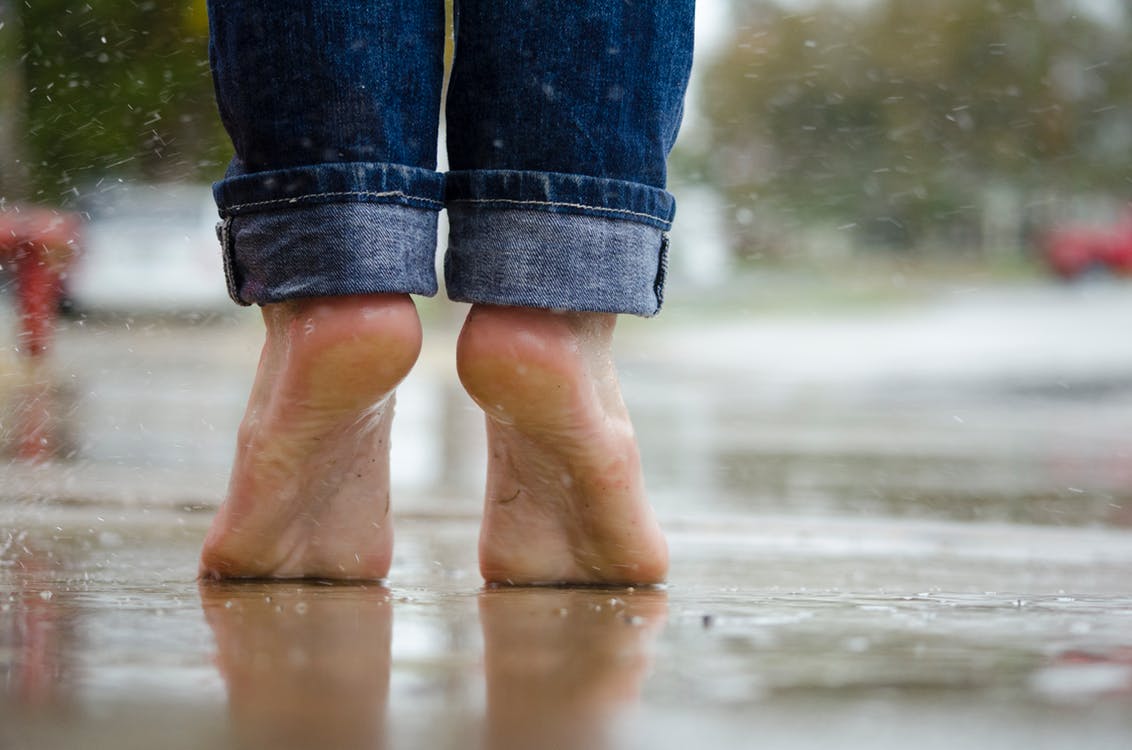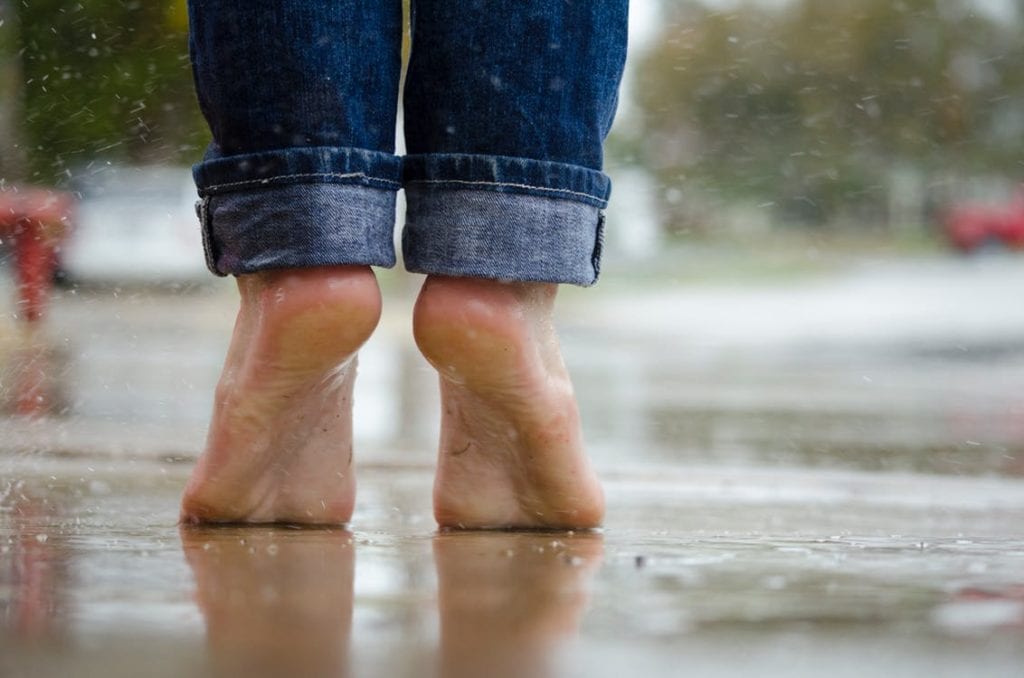As we get older and our bodies begin to show signs of wear and tear, it makes sense that we will need to adapt to these changes. One part or your body that you will need to take care of a little more in your later years is your feet. You need to take some precautions to keep those aging feet healthy and strong for many more years and miles to come.
Think about it: you’ve been on your feet every day for decades, putting your full body weight onto each foot thousands of times per day. That is a lot of pressure on those feet, and they’ve literally carried you for hundreds of miles throughout your lifetime.
All that pounding can begin to take its toll as the years go by. It is not uncommon for seniors to experience foot problems such as hairline bone fractures, foot cramps, bunions, ingrown toenails, plantar fasciitis and numbness in the toes. These can be serious problems, especially if they are left to fester for long periods of time.
For this reason, seniors and their caretakers need to pay extra attention to the feet on a regular basis. Below are a few tips to help you take good care of those feet and ensure that they are able to give you the mobility and freedom you want.
1. Massage Feet Regularly
Who says good medicine has to taste bad? My first delicious prescription for healthy feet is to give them a good massage several times per week, if not every day. Nobody wants to rub stinky feet, though, so if you want a little assistance with this one, then practice good hygiene and give those feet a good cleaning every time you take a shower or bath.
But you can massage your own feet too. It only takes a few minutes and feels like heaven on Earth, especially after a hot shower at the end of a long day. Be sure to stretch out your toes a little bit too, slowly bending them downward as far as they can comfortably go. Then gently pull them back toward your shins.
Don’t strain. Be gentle on yourself. You can also roll your feet or ankles around in circles to improve your ankle flexibility while you’re at it.
2. Wear Proper Footwear
Many senior citizens grew up in difficult economic times and learned to embrace frugality and shun materialism. As a result, they have a hard time spending money on themselves and will often buy the cheapest products they can find — if they buy anything at all.
That might be okay with some purchases, but it is a mistake when purchasing shoes. As your feet age, they need more love and attention — and probably arch support too. Wearing high-quality footwear that are specifically tailored to your foot shape and condition can preserve the condition of your feet. Good shoes are especially important if you have plantar fasciitis or heel spurs.
Seriously, buy yourself some good shoes.
3. Maintain Healthy Weight
Keeping your weight in a healthy range is one of the best things you can do for your health. And this certainly includes your feet, because those little guys are carrying around every pound of your body all day long.
You don’t have to be as skinny as a flag pole, but you should avoid carrying a lot of excess body fat. Check one of those height and weight charts or talk to your doctor about what a healthy person of your height and build should weigh. Carrying a few extra pounds of fat won’t kill your feet, but if you’re the biggest guy in the room, you could probably benefit from shedding a few pounds.
A few extra minutes of activity per day is really all it takes to improve your health and lose a few pounds. Taking an extra walk around the house or participating in a yoga class a few times per week can work wonders for your body and mind. Your local senior center might also have some exercise classes or a fitness facility with strength machines and exercise bikes. You might even try jumping into the swimming pool and splashing around for awhile when summer rolls around.
You could also back off on junk food and squeeze in some fresh fruit and veggies instead. Throw in a bowl of oatmeal or cereal some mornings instead of pancakes and sausage, and you’re good to go.
4. Report Concerns to Physician
Do you remember the last car you had? Did you drive that thing around for years and years before finally running it into the ground? Maybe it had some minor mechanical problems and made some noises that it wasn’t supposed to make? But it kept running, so you kept driving it until it finally pooped out on you.
That’s pretty common — and not just with cars. A lot of us treat our homes the same way. When you put off small problems for so long that they grow into huge problems, that’s called deferred maintenance. It’s no good for your car. And it’s no good for your home.
And a lot of us treat our bodies that way too, especially our feet. Out of sight, out of mind, right? Don’t make that mistake! Any time you experience a problem in your feet, you should mention it to your doctor, to a family member or to your caregiver.
Many minor issues can be corrected if they are addressed soon enough. But when you defer maintenance on your body, minor health issues can degrade into major health problems. And some of these can cause permanent health problems.
Those are your only two feet. You can’t just run them into the ground and then buy a new pair or trade them in for this year’s new deluxe model. It doesn’t work that way. Take good care of your feet, and your feet will take good care of you!
Keeping your feet healthy isn’t hard to do. It’s just like taking care of a car: you need to perform maintenance on a regular schedule, keep it clean, get it out on the road every day and perform minor repairs to prevent it from degrading into major ones.
Do the same with your feet!
Practice good foot hygiene. Give them a good massage regularly. Wear some good shoes that support your feet and fit properly. Maintain a good, healthy weight for your height and age and make sure to keep your caregivers informed about any aches and pains you are experiencing in your feet, toes and ankles.
Give your feet the attention they need, and they’ll thank you for it.
Author: Scott Grant, ATP, CRTS
Scott is a custom wheelchair specialist for a local home medical company where he works daily with seniors who need help with their mobility. He is also the founder and editor of Graying With Grace, a site that helps seniors live a more independent life. At home, he is the father of 4 beautiful daughters and a grandfather of 3. You can follow him on Facebook or Twitter.

